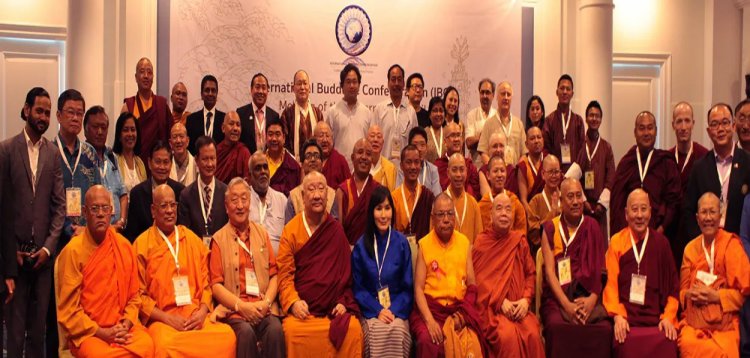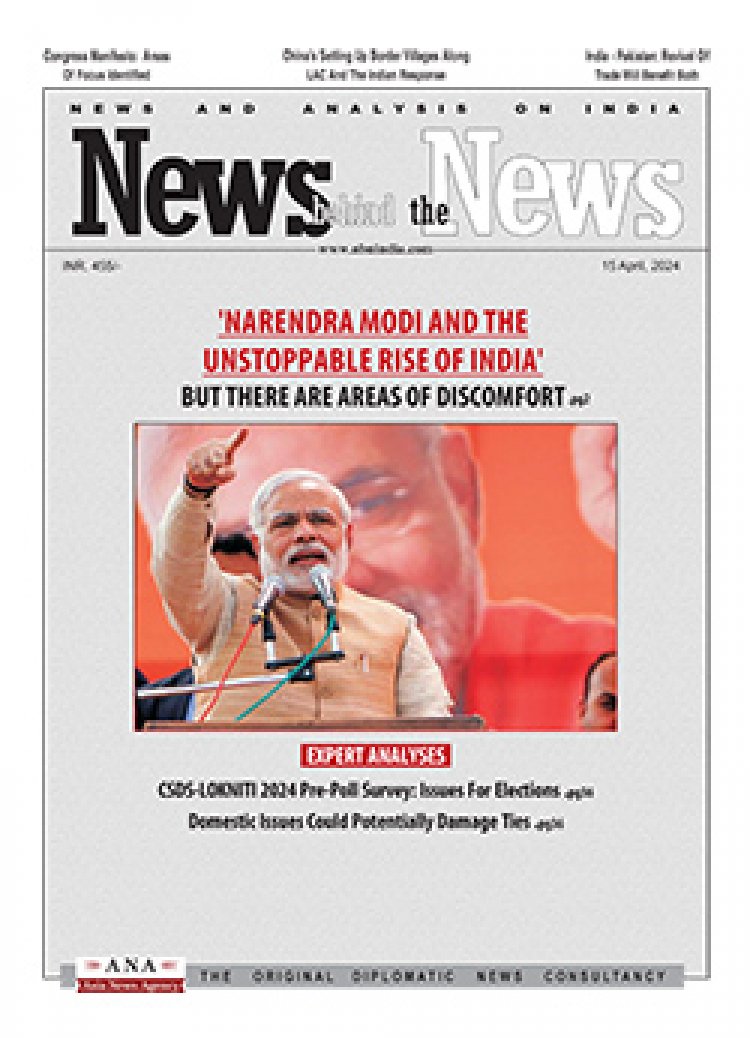Global Buddhist Summit in Delhi: Opportunity for India to Project its Soft Power
STORIES, ANALYSES, EXPERT VIEWS

India hosted a two-day global Buddhist summit in New Delhi on April 20-21. The summit was organised by the Ministry of Culture in collaboration with the International Buddhist Confederation. Key figures from the global Buddhist community, including the Dalai Lama, participated. Among those were a diverse group of 171 foreign delegates from South Korea, Thailand, Cambodia, Japan, and Taiwan, along with 150 delegates from Indian Buddhist organisations. Also in attendance were prominent scholars, ‘sangha' leaders, and ‘dharma’ practitioners.
Opportunity to project India’s soft power
The summit, write Analysts Abhishek Srivastava and Kartike Garg, writing in The Hindu “was a significant opportunity for India to project and connect with the Buddhist population around the world, thereby strengthening the country’s soft power.”
The summit’s theme, ‘Responses to Contemporary Challenges: Philosophy to Praxis’, "highlights India’s attempts to provide an alternative to contested global politics, with morality as the guiding principle.”
Through such efforts, the two authors state “India hopes to reinforce its image as a responsible global power committed to peaceful cooperation and regional stability. By laying an emphasis on cultural and civilisational ties, India seeks to promote greater understanding and cooperation between nations and to demonstrate the unique role it can play in shaping the region’s future.”
Importantly, “by hosting such a high-profile event, the Indian government hopes to demonstrate its commitment to preserving and promoting Buddhist culture and heritage, as well as strengthening ties with the global Buddhist community. With its strong historical and cultural ties to Buddhism, India is well-positioned to play a leading role in shaping the discourse around Buddhist issues on the global stage.”
India has the edge over China
Buddhist diplomacy has the potential to promote regional cohesion, given that nearly 97% of the global Buddhist population is based in Asia. During the Cold War, China effectively used Buddhist diplomacy to engage with its neighbouring countries, and it continues to employ this approach to gain legitimacy for its Belt and Road Initiative. As India and China compete to dominate the Buddhist heritage as a tool for soft power, “India holds an advantage due to the faith’s origins in the country.
“India recognises the importance of Buddhism as a means of conducting public diplomacy and has utilised it to its advantage. However, to maintain its edge over China, more action is needed. China is actively seeking to exert control over the appointment of the next Dalai Lama, which would be a blow to India’s efforts to project its soft power through Buddhism. India must act to ensure that it remains a key player in the global Buddhist community.”
















